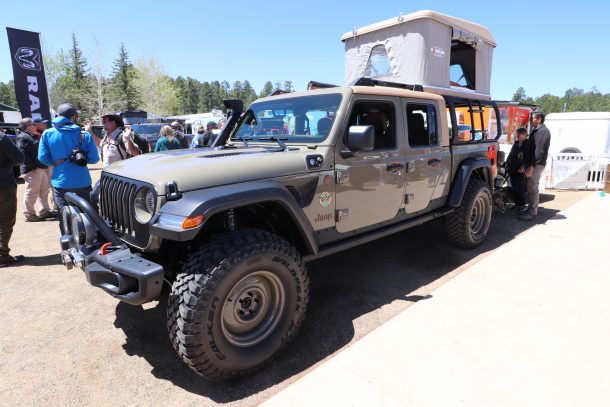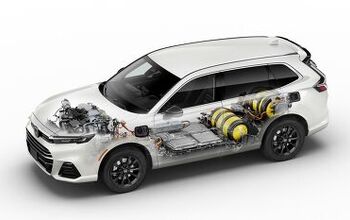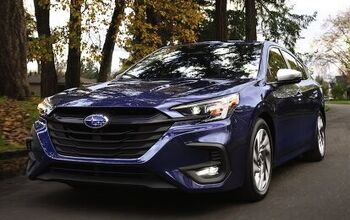Overland Expo West Postponed Again
Overland Expo West has been postponed again, this time to September 24-26, 2021. The largest adventure travel event in the country, held in mid-May in Flagstaff, Arizona, has been pushed back to ensure the health and safety of participants, exhibitors, staff, attendees, and the community. Lodestone Events, producers of the Overland Expo event series, made the announcement last week.
“Overland Expo West is our flagship and the event that started it all. After conversations with the venue and local health officials, we collectively decided to postpone until late summer out of an abundance of caution,” said Lodestone Events Marketing VP Jessica Kirchner. “We’ll miss Flagstaff’s traditional springtime gathering. However, we are excited to safely congregate with the overland community at Fort Tuthill in September.”
Overland Expo has implemented a set of COVID-19 protocols they will adhere to in order to ensure the health and safety of attendees at this and their other upcoming events, including pre-entry screening, mandatory masking, touchless transactions, and social distancing. Anyone planning to attend an Overland Expo event in 2021 is encouraged to review these procedures, as they will be enforced at all events.
Founded in 2009, Overland Expo is a series for do-it-yourself adventure travel enthusiasts. Vendors of adventure travel equipment, camping gear, bikes, vehicles, and services convene at these events. Each Expo holds classes in off-road driving techniques, adventure motorcycling, inspirational programs, roundtable discussions, and demonstrations, as well as the Overland Film Festival.
Tickets and booth space for the 2021 event series will go on sale in January. Event organizers are hoping Overland Expo West will return to its traditional May date by 2022.
[Images: © 2020 J. Sakurai/TTAC]
With a father who owned a dealership, I literally grew up in the business. After college, I worked for GM, Nissan and Mazda, writing articles for automotive enthusiast magazines as a side gig. I discovered you could make a living selling ad space at Four Wheeler magazine, before I moved on to selling TV for the National Hot Rod Association. After that, I started Roadhouse, a marketing, advertising and PR firm dedicated to the automotive, outdoor/apparel, and entertainment industries. Through the years, I continued writing, shooting, and editing. It keep things interesting.
More by Jason R. Sakurai
Latest Car Reviews
Read moreLatest Product Reviews
Read moreRecent Comments
- W Conrad I'm not afraid of them, but they aren't needed for everyone or everywhere. Long haul and highway driving sure, but in the city, nope.
- Jalop1991 In a manner similar to PHEV being the correct answer, I declare RPVs to be the correct answer here.We're doing it with certain aircraft; why not with cars on the ground, using hardware and tools like Telsa's "FSD" or GM's "SuperCruise" as the base?Take the local Uber driver out of the car, and put him in a professional centralized environment from where he drives me around. The system and the individual car can have awareness as well as gates, but he's responsible for the driving.Put the tech into my car, and let me buy it as needed. I need someone else to drive me home; hit the button and voila, I've hired a driver for the moment. I don't want to drive 11 hours to my vacation spot; hire the remote pilot for that. When I get there, I have my car and he's still at his normal location, piloting cars for other people.The system would allow for driver rest period, like what's required for truckers, so I might end up with multiple people driving me to the coast. I don't care. And they don't have to be physically with me, therefore they can be way cheaper.Charge taxi-type per-mile rates. For long drives, offer per-trip rates. Offer subscriptions, including miles/hours. Whatever.(And for grins, dress the remote pilots all as Johnnie.)Start this out with big rigs. Take the trucker away from the long haul driving, and let him be there for emergencies and the short haul parts of the trip.And in a manner similar to PHEVs being discredited, I fully expect to be razzed for this brilliant idea (not unlike how Alan Kay wasn't recognized until many many years later for his Dynabook vision).
- B-BodyBuick84 Not afraid of AV's as I highly doubt they will ever be %100 viable for our roads. Stop-and-go downtown city or rush hour highway traffic? I can see that, but otherwise there's simply too many variables. Bad weather conditions, faded road lines or markings, reflective surfaces with glare, etc. There's also the issue of cultural norms. About a decade ago there was actually an online test called 'The Morality Machine' one could do online where you were in control of an AV and choose what action to take when a crash was inevitable. I think something like 2.5 million people across the world participated? For example, do you hit and most likely kill the elderly couple strolling across the crosswalk or crash the vehicle into a cement barrier and almost certainly cause the death of the vehicle occupants? What if it's a parent and child? In N. America 98% of people choose to hit the elderly couple and save themselves while in Asia, the exact opposite happened where 98% choose to hit the parent and child. Why? Cultural differences. Asia puts a lot of emphasis on respecting their elderly while N. America has a culture of 'save/ protect the children'. Are these AV's going to respect that culture? Is a VW Jetta or Buick Envision AV going to have different programming depending on whether it's sold in Canada or Taiwan? how's that going to effect legislation and legal battles when a crash inevitibly does happen? These are the true barriers to mass AV adoption, and in the 10 years since that test came out, there has been zero answers or progress on this matter. So no, I'm not afraid of AV's simply because with the exception of a few specific situations, most avenues are going to prove to be a dead-end for automakers.
- Mike Bradley Autonomous cars were developed in Silicon Valley. For new products there, the standard business plan is to put a barely-functioning product on the market right away and wait for the early-adopter customers to find the flaws. That's exactly what's happened. Detroit's plan is pretty much the opposite, but Detroit isn't developing this product. That's why dealers, for instance, haven't been trained in the cars.
- Dartman https://apnews.com/article/artificial-intelligence-fighter-jets-air-force-6a1100c96a73ca9b7f41cbd6a2753fdaAutonomous/Ai is here now. The question is implementation and acceptance.





































Comments
Join the conversation
I'm not even surprised that this year's overland expo west has been postponed again due to the pandemic. I guess we just have to look forward again for next year that the event will push through. I miss going to events like this. I was able to attend the 2017 overland expo and had a great time there. I met a lot of off-road enthusiasts. I also got some of the mod ideas for my truck there and someone recommended Toyo all-terrain tires for my rig.